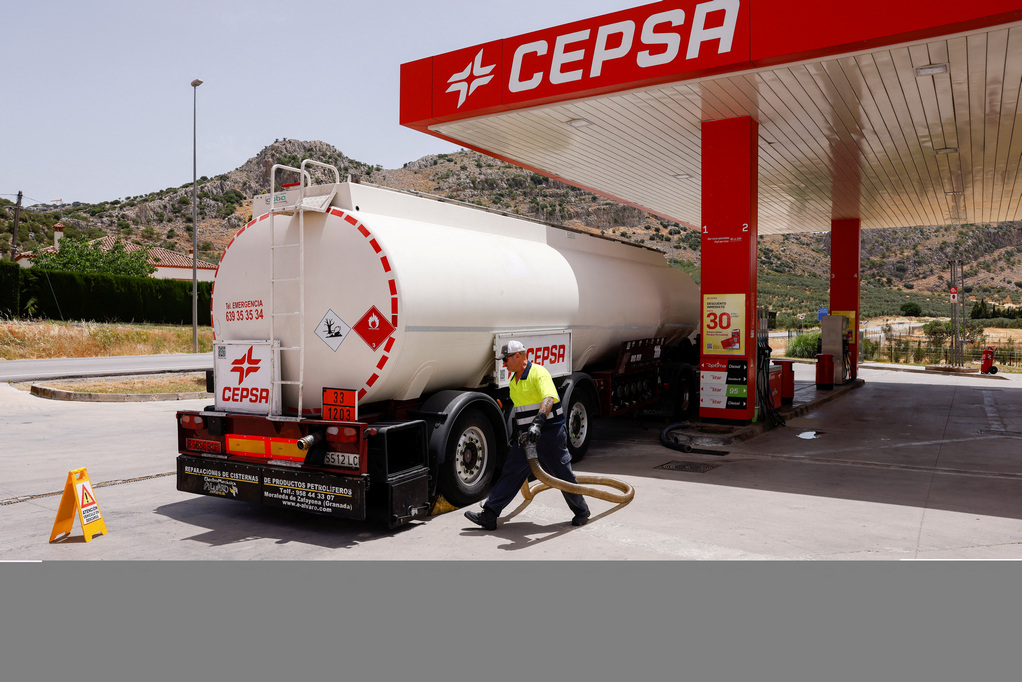Cepsa has awarded Técnicas Reunidas the contract for the detailed engineering of the largest second-generation (2G) biofuels plant in southern Europe, which Cepsa will start up together with Bio-Oils, with an investment of up to 1 billion euros, at the La Rábida Energy Park in Huelva.
The new plant, which will use agricultural waste and used cooking oils as feedstock, will have two pretreatment units and a flexible production capacity of 500,000 tons of renewable diesel and SAF (sustainable aviation fuel) for use in air, sea, and land transport.
Técnicas Reunidas will develop the facility’s engineering, procurement management, and construction management support. Specifically, the scope of the work awarded to Técnicas Reunidas includes the renewable fuels unit (RFU), the amine regeneration unit (ARU), the acid water unit (SWS), and the service generation units, the interconnections, the storage tank farm, and the ship and tanker loading and unloading facilities.
Técnicas Reunidas will assign a team of more than 180 expert professionals and will dedicate some 500,000 hours of highly qualified personnel to carry out all phases of the engineering and procurement services for equipment and materials for the project, with support for construction management at Cepsa’s request.
The sustainable fuels developed in this new plant will reduce 1.5 million tons of CO2 per year, equivalent to 30% of emissions in the province of Huelva. The use of biofuels can reduce CO2 emissions by up to 90% compared to traditional fuels, making them a key element in enabling a fair energy transition and promoting the decarbonization of transportation, especially in sectors where electrification is complex, such as heavy road, air and maritime transportation.
Among other initiatives, Técnicas Reunidas has provided engineering services for a biomethanol plant in Amsterdam, The Netherlands, and is participating in another similar project in Spain.
The construction of this new plant is in line with Cepsa’s goal of leading 2G biofuels production in Spain and Portugal by 2030. By 2030, the company will have an annual production capacity of 2.5 million tons of biofuels, of which 800,000 tons will be SAF, enough sustainable jet fuel to fly over the planet 2,000 times.
In its strategic plan, Cepsa has established a roadmap to cut its emissions that is among the most ambitious in its sector. Specifically, in 2030, it will reduce its CO2 emissions (Scope 1 and 2) by 55% and its carbon intensity index by 15-20%, to achieve net zero emissions by 2050.
Cepsa wants to go beyond net zero and have a positive impact, adding value in the communities where it operates by enabling its customers and other stakeholders to move forward in the right direction.
Creating this installation contributes to several of the 2030 Agenda’s Sustainable Development Goals: SDG 7 (Affordable and clean energy), SDG 8 (Decent work and economic growth), SDG 12 (Responsible consumption and production), and SDG 13 (Climate action).
Tags: 2G Biofuels, Cepsa, Plant, Técnicas Reunidas



Recent Posts
YamnaCo Signs MoU with Andhra Pradesh to Develop Large-Scale Green Hydrogen and Ammonia Project
WNTI and NEMO Sign MoU to Advance Nuclear-Powered Shipping and Mobile Nuclear Energy Solutions
TotalEnergies and CMA CGM Form Joint Venture for LNG Bunkering Operations in Rotterdam
Keel laid for Bibby Marine’s first zero-emission eCSOV
New Report Highlights Potential of Voluntary Insetting to Support Maritime Decarbonisation, Calls for Robust Safeguards
Smart Ship Hub achieves industry first with ABS emission reporting
Henkel Rolls Out India’s First Mid-Haul Re-Powered Electric Trucks for Commercial Logistics
Sustainability in Focus at 11th SIAM Automotive Logistics Conclave in New Delhi